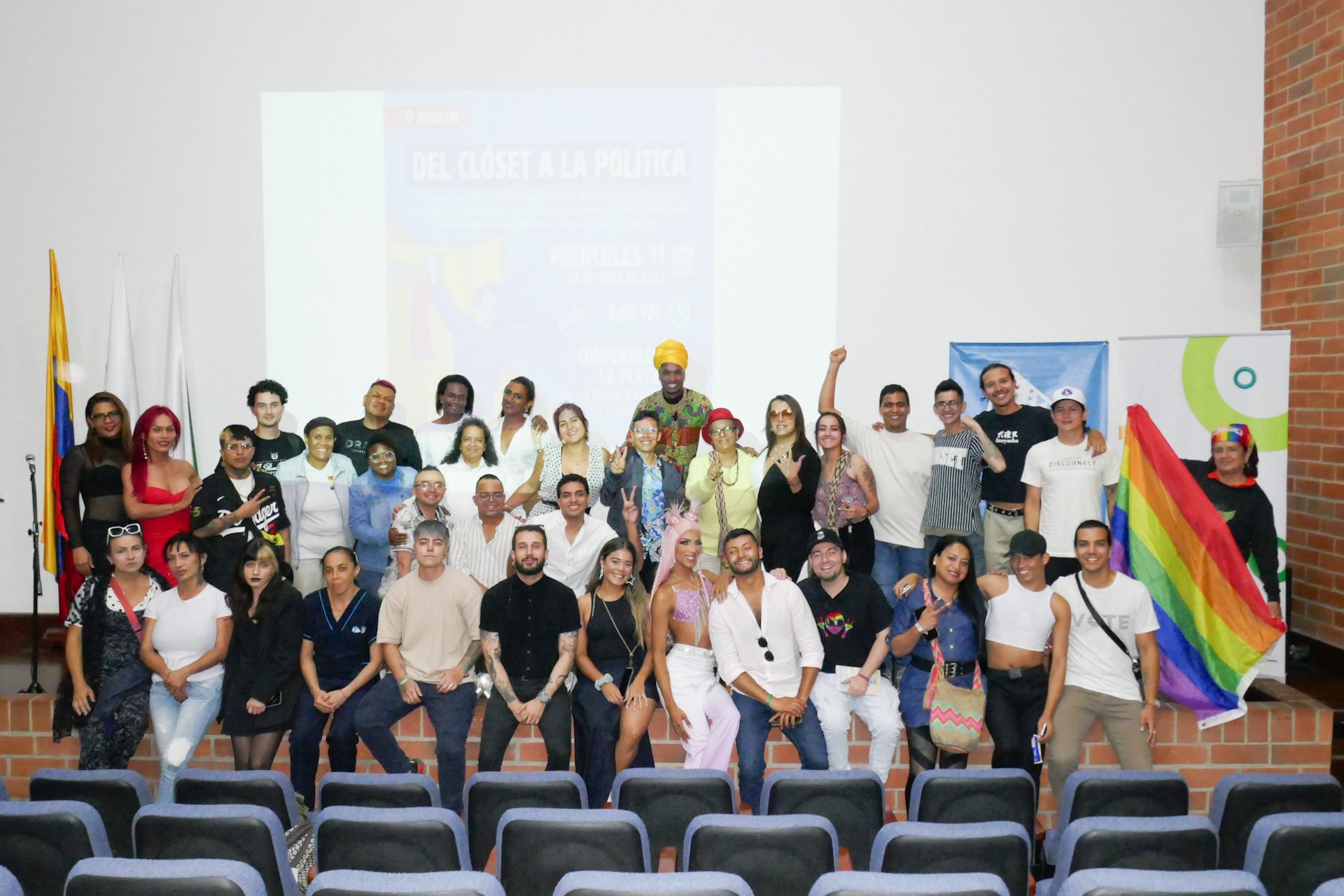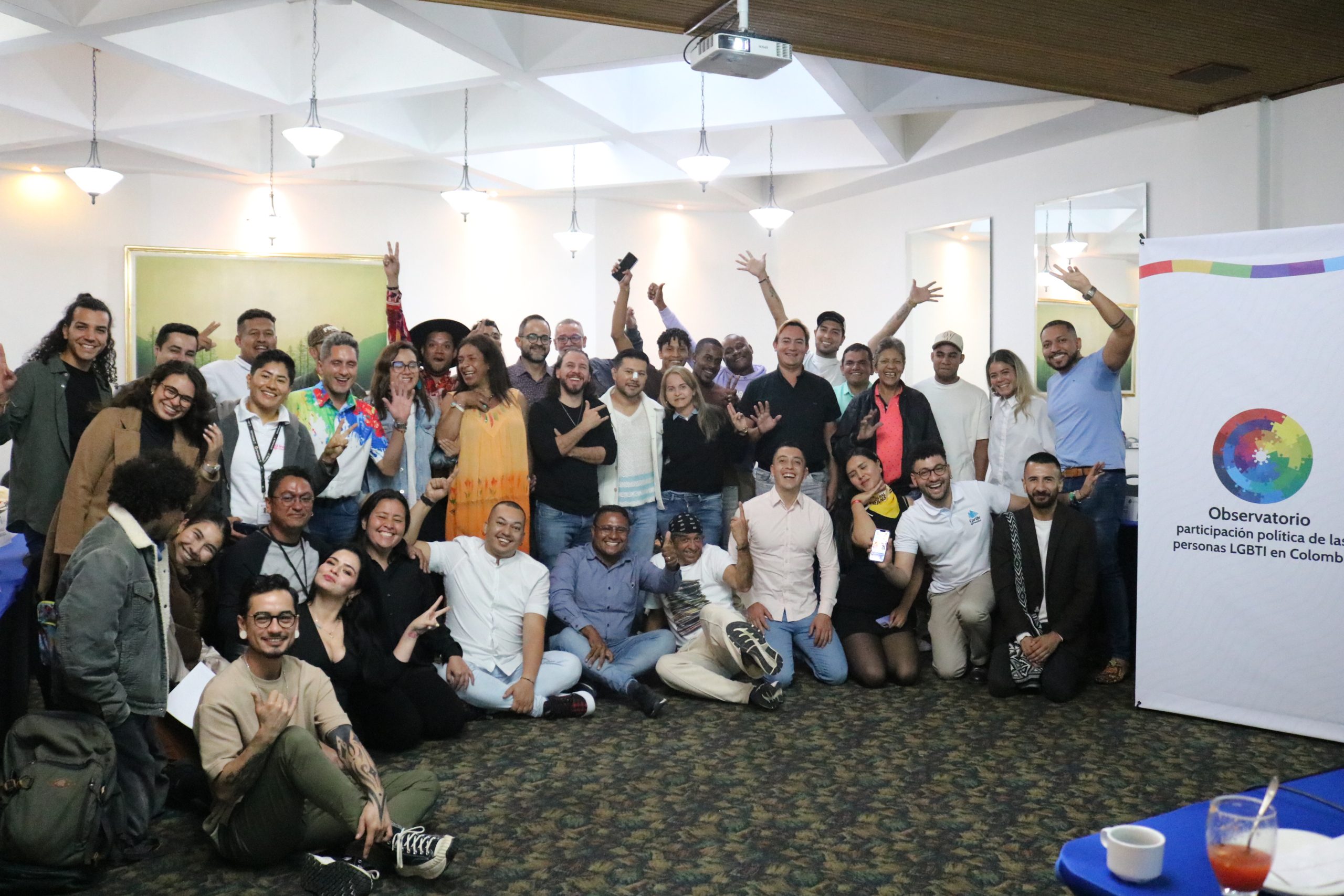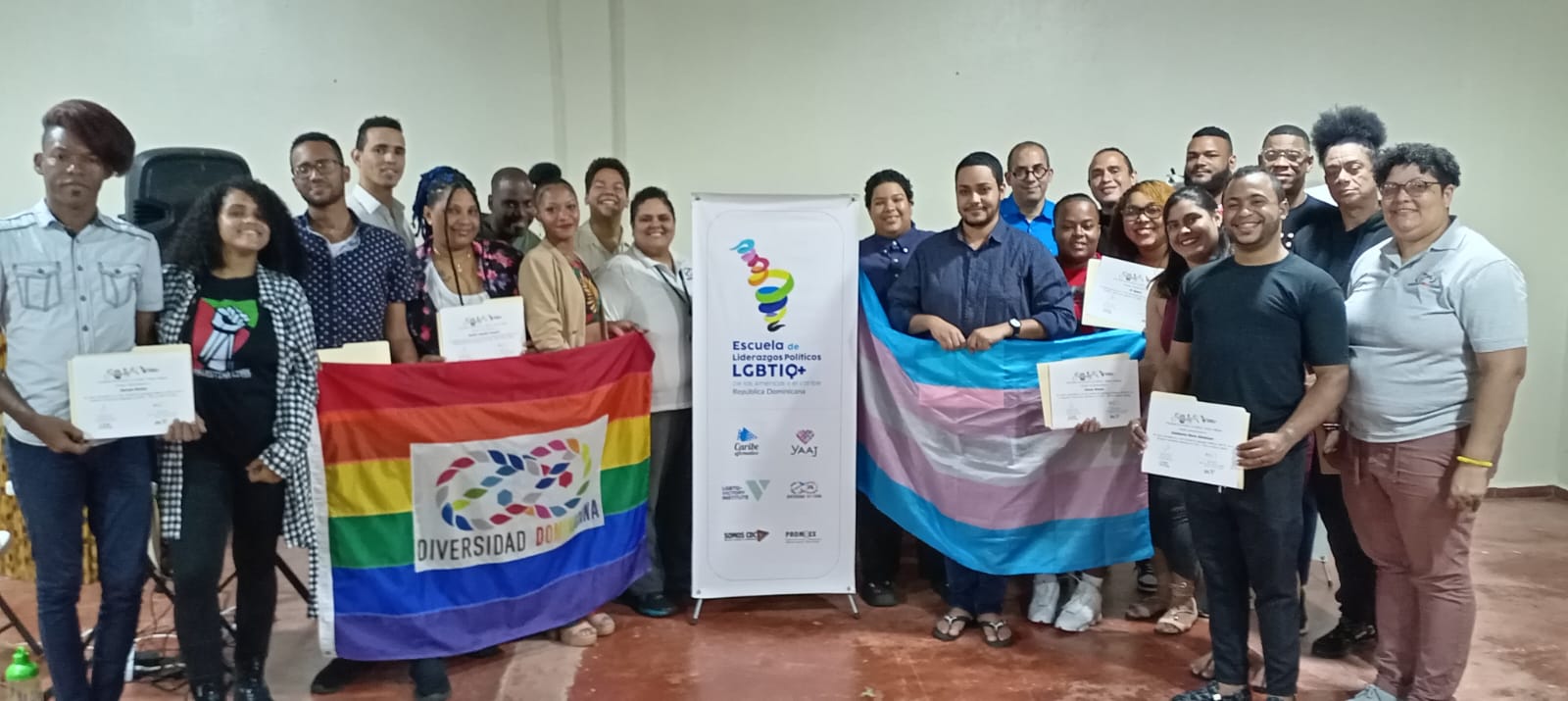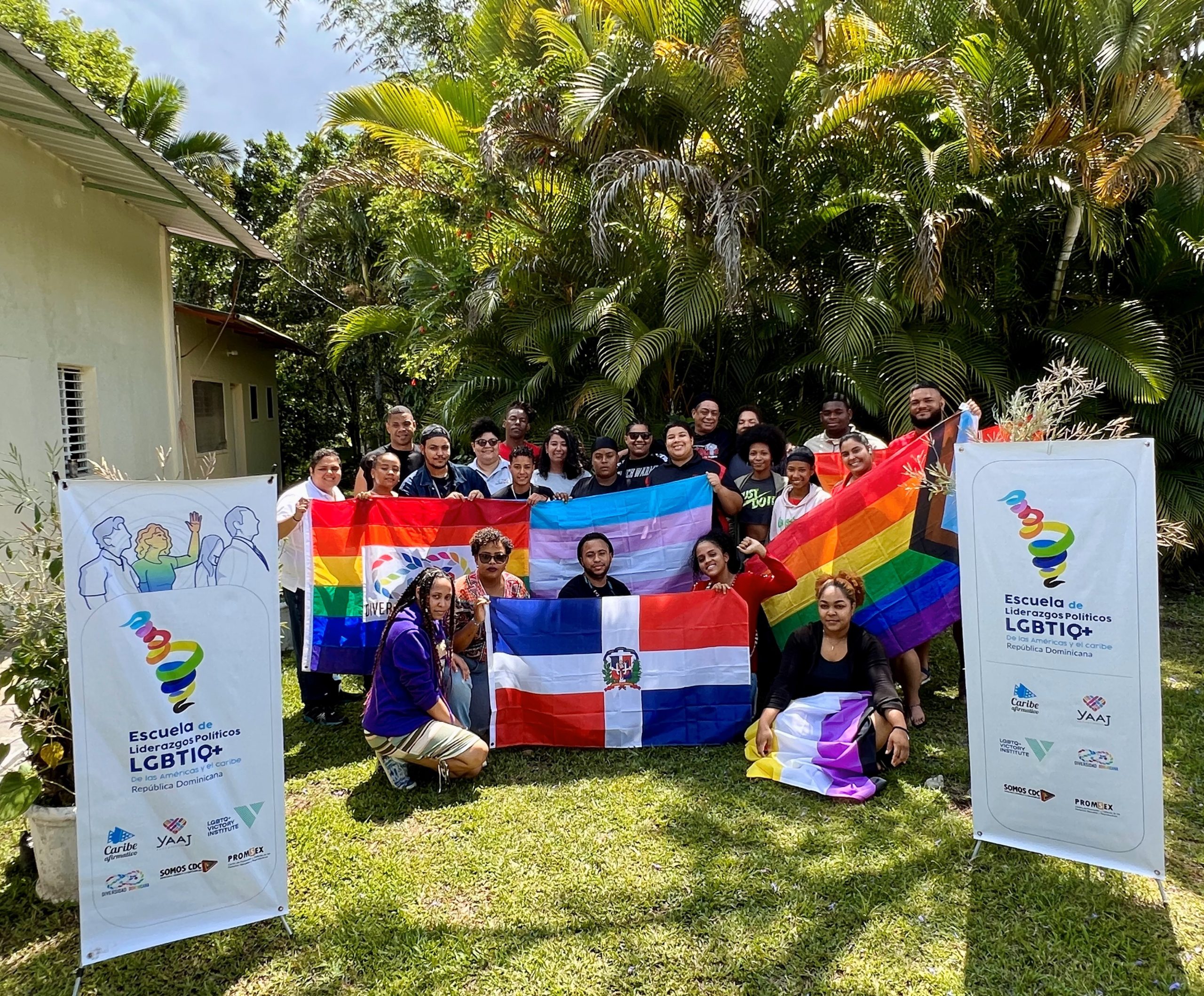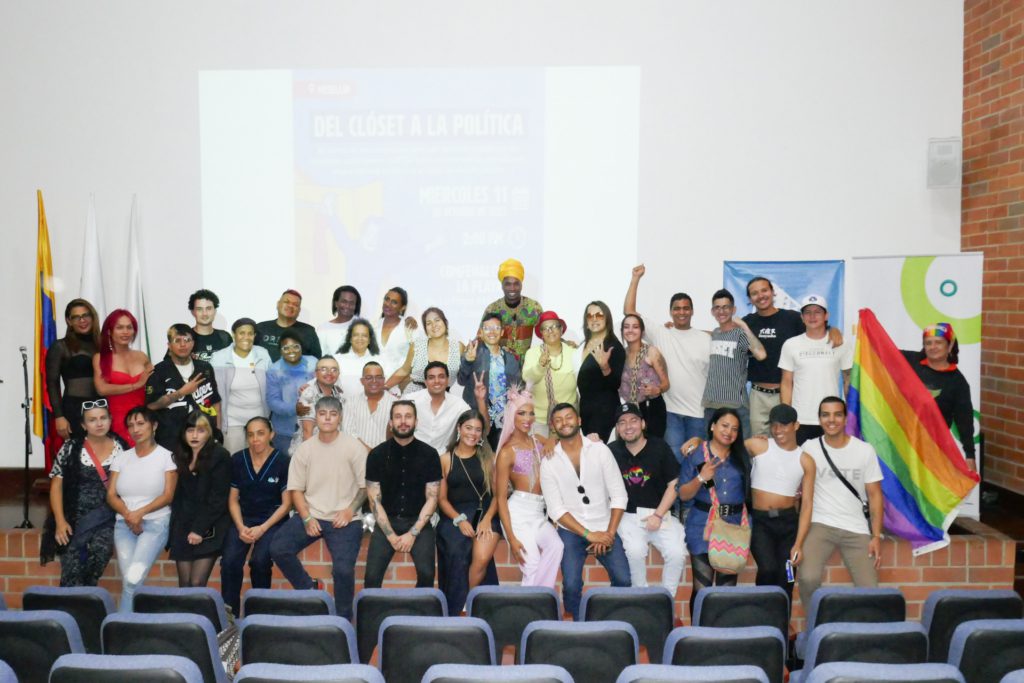
In 2023, we are seeing a historic precedent being set for LGBTQI+ political participation in Colombia’s territorial elections, in which state governors, mayors, councillorships, town councilors and regional assembly deputies will be elected. 201 out LGBTQI+ candidates are registered (and counting!), a historic high!
In our LGBTQI+ leadership training, which recently took place in Medellín, Colombia, there were a total of 15 Victory Institute training participants, all of which were registered candidates in Colombia’s territorial elections that took place this past Sunday, October 29. Of these, 10 are running for Councillorships at the municipal-level, 4 are running for Town Councillorships at the local level and 1 is running to be a Departmental Deputy!
Alarmingly, 13 candidates officially registered political violence cases. According to the Observatory on LGBTI Political Participation in Colombia, which Victory Institute is a founding member of, this year’s territorial elections has seen a concerning uptick in cases of political violence against LGBTQI+ candidates. One of these registered cases of political violence was suffered by a participant in this year’s leadership training program. Our partners at Caribe Afirmativo have taken on his case and have been accompanying him throughout this difficult period.
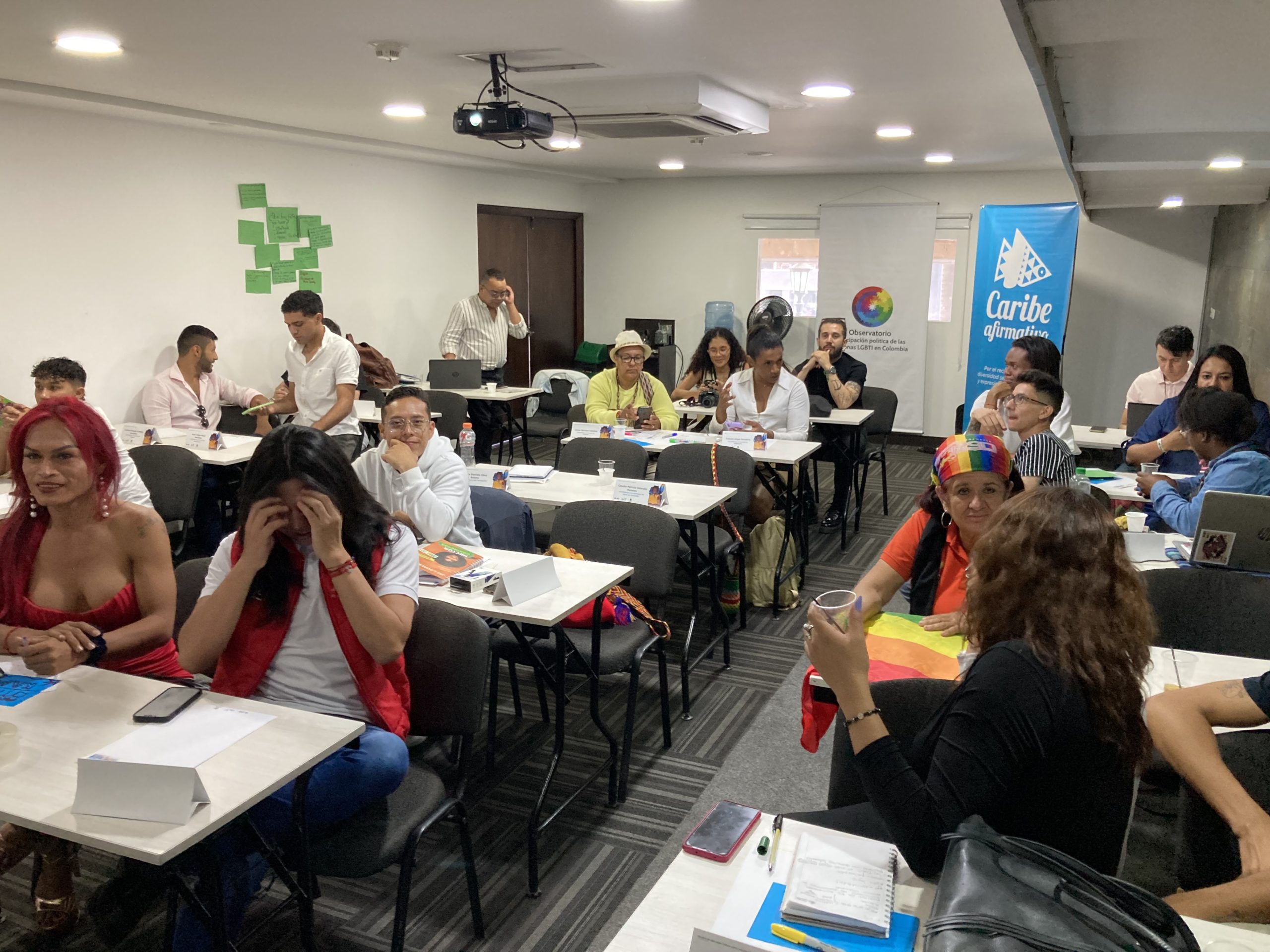
DAY 1
Connecting on Experiences, Sharing Wins and Ensuring Votes for Equality
“We must start from the psychosocial; if one is not okay personally, how can one properly function politically?” – Juan Felipe Ortiz, Caribe Afirmativo’s Medellín local coordinator.
On day 1 of the training, candidates identified challenges they face when running for office. Topics included facing discrimination and lack of support from their own political parties, in addition to general public; a lack of recognition for diversities; and the need to attain true collaboration and network support between LGBTQI+ candidates and engagement with voters.
Building off of this reflection on voters, our partners at Caribe Afirmativo worked with candidates presenting the Vote for Equality Campaign, a national strategy to promote the free, transparent and informed votes of LGBTQI+ people. The session centered the importance of their candidacies and just how, through the Vote for Equality campaign, candidates like them are being profiled for the territorial elections in Colombia.
We also held a public event “From the Closet to Politics,” celebrating their lives, experiences and candidacies.
Candidates were challenged to take questions from the moderator and audience, which allowed for the sharing of reflections from the morning with local media and a completely public audience. They also honed their public speaking chops and showcased the way their candidacies were real-time innovations in Colombian politics. It wasn’t just a showcase of who they were as candidates, it was a showcase of who they are as people – their struggles and the risks still too ever-present, but the aspirations and the hope for the true guarantee of LGBTQI+ rights and lives evermore present.
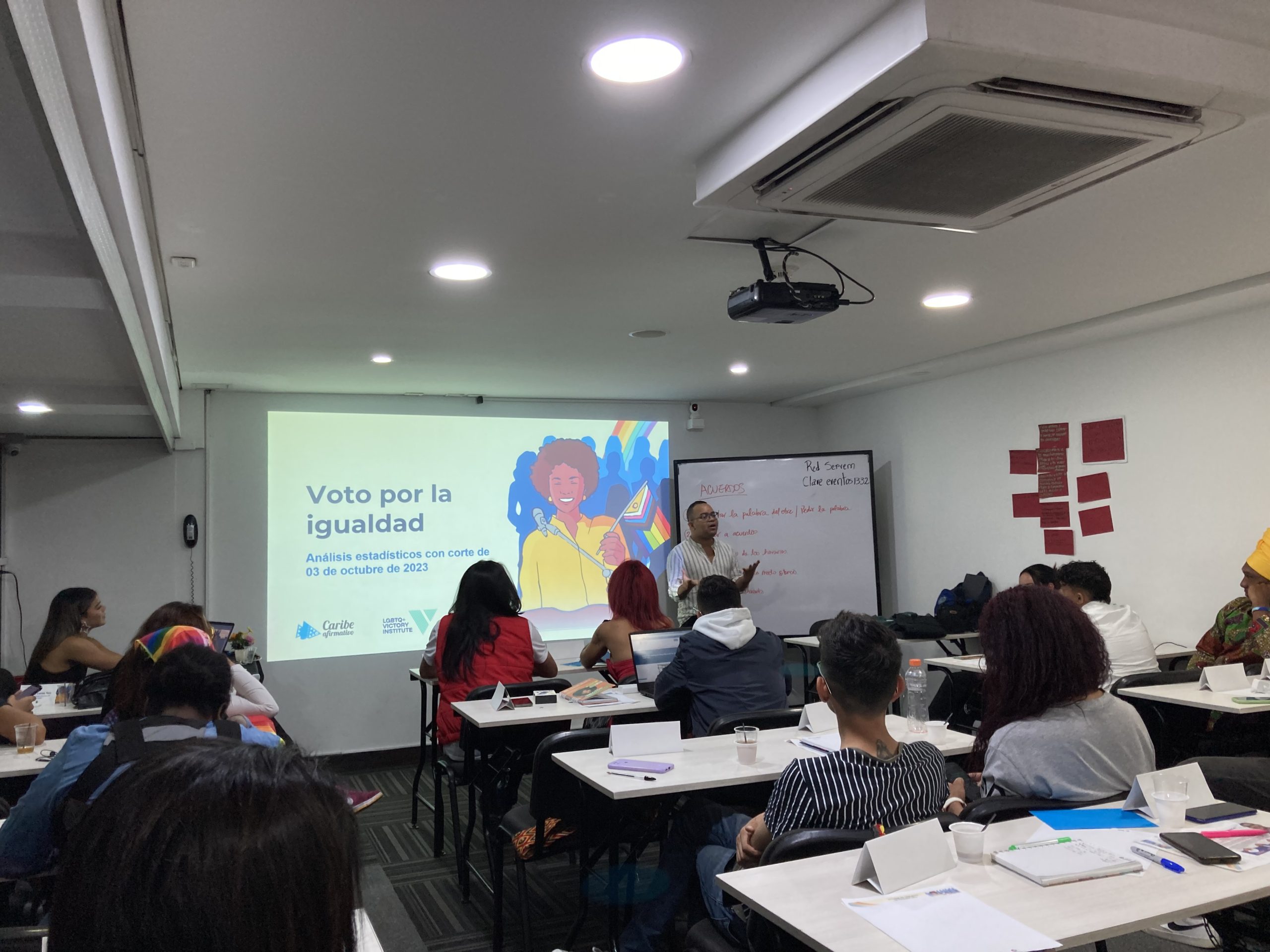
DAY 2
Electoral Campaigns and Strategizing for Post-Elections
After the packed and reflective focus of the first day of training, day two continued full speed ahead with a focus on Electoral Campaigns. Key to this session was not so much on how to build a campaign, but centering on what comes after the elections. Our trainer invited participants to take a pragmatic approach to thinking about their path outside of the context of the elections, regardless of the outcome.
At the end of our second and final day, Caribe’s Coordinator for Human Rights and Political Advocacy, Ces Badillo, led our cohort through a short recap of the past two day’s learnings, closing by posing questions like:
Was the increased representation of LGBTQI+ people in positions of political power equating to an increased guarantee of LGBTQI+ rights in Colombia? To what end was increased LGBTQI+ representation serving a purpose?
Never a dull moment during the past two days, this last discussion was no less rich and packed with varying opinions. The general recognition means there is still much to build towards for LGBTQI+ public officials in order to guarantee rights in Colombia, but that using the momentum of the ground gained so far will allow for concrete steps to be taken.
The past week in Medellín was so motivating to accompany a cohort completely made up of candidates, to see the impact that our trainings even for those already in an electoral process, and to witness firsthand just how important these spaces are for continued strategy-building among LGBTQI+ leaders.
